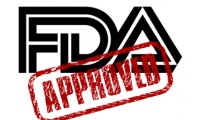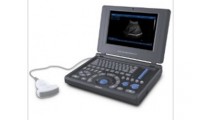-
FDA warns of COVID-19 antigen test false positives as report flags Quidel on accuracy
- Source: drugdu
- 384
- November 9, 2020
-
FDA Approves First Treatment for COVID-19
- Source: drugdu
- 258
- October 26, 2020
-
Remdesivir becomes first Covid-19 treatment to receive FDA approval
- Source: drugdu
- 244
- October 23, 2020
-
AZ’s Farxiga Gets FDA Priority Review For Heart Failure
- Source: https://scrip.pharmaintelligence.informa.com/SC141424/AZs-Farxiga-Gets-FDA-Priority-Review-For-Heart-Failure
- 1,395
- January 8, 2020
-
FDA approved Infusion Set with Needle
- Source: drugdu
- 1,830
- October 19, 2018
-
BIOTRONIK PK Papyrus Stent gets FDA approval for treatment of Acute Coronary Perforations
- Source: drugdu
- 386
- September 22, 2018
-
FDA issues new guidelines to prescribe immediate-release opioids
- Source: drugdu
- 820
- September 20, 2018
-
AliveCor gets FDA breakthrough status for Hyperkalemia diagnosis
- Source: drugdu
- 1,325
- September 13, 2018
-
Baxter’s new Actifuse Flow bone graft alternative gets FDA nod.
- Source: drugdu
- 1,063
- September 13, 2018
-
FDA approves Masimo’s Tiny Breathing Sensor for Paediatric patients in U.S.
- Source: drugdu
- 1,131
- September 12, 2018
your submission has already been received.
OK
Subscribe
Please enter a valid Email address!
Submit
The most relevant industry news & insight will be sent to you every two weeks.













